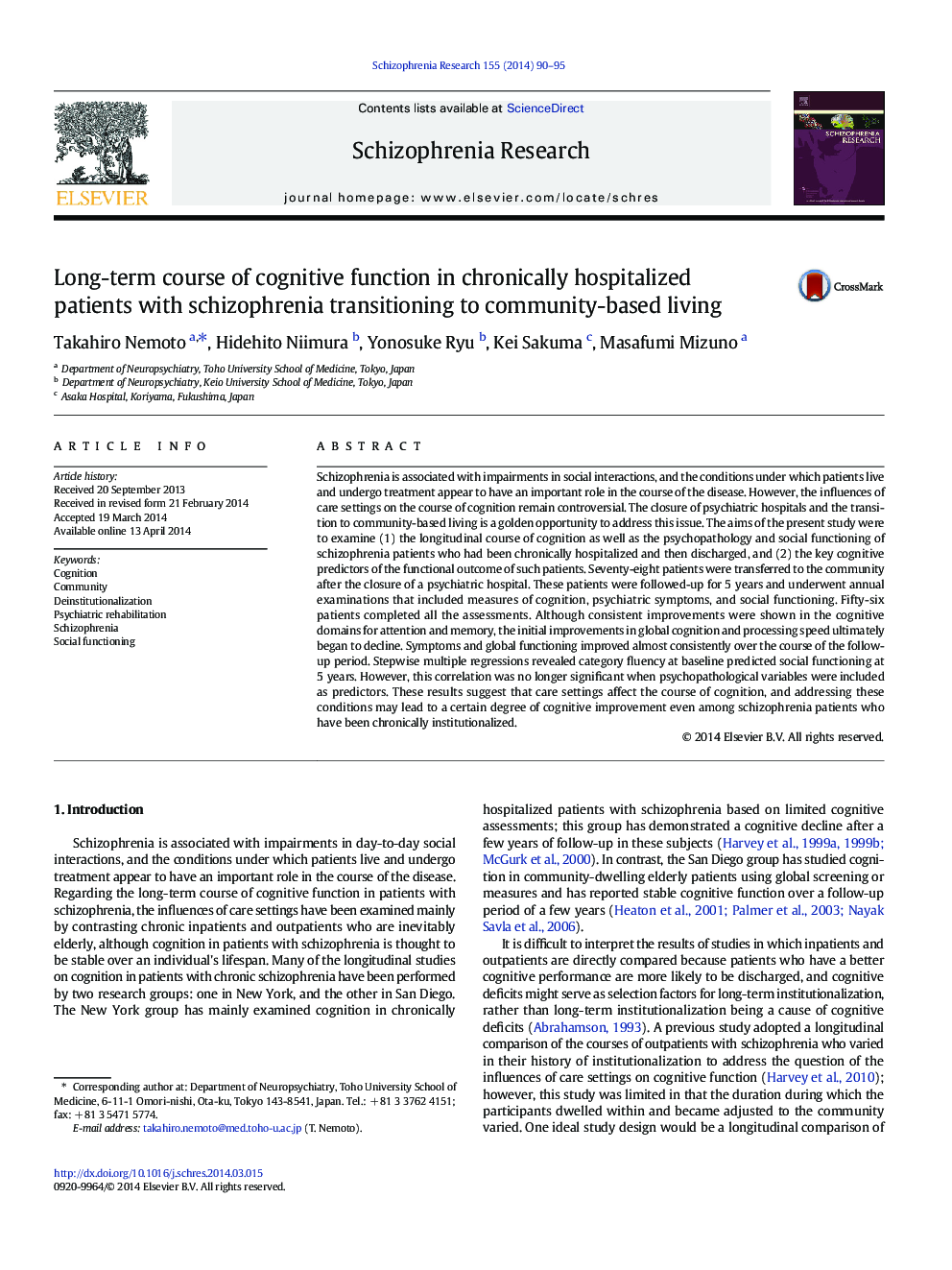| Article ID | Journal | Published Year | Pages | File Type |
|---|---|---|---|---|
| 6825273 | Schizophrenia Research | 2014 | 6 Pages |
Abstract
Schizophrenia is associated with impairments in social interactions, and the conditions under which patients live and undergo treatment appear to have an important role in the course of the disease. However, the influences of care settings on the course of cognition remain controversial. The closure of psychiatric hospitals and the transition to community-based living is a golden opportunity to address this issue. The aims of the present study were to examine (1) the longitudinal course of cognition as well as the psychopathology and social functioning of schizophrenia patients who had been chronically hospitalized and then discharged, and (2) the key cognitive predictors of the functional outcome of such patients. Seventy-eight patients were transferred to the community after the closure of a psychiatric hospital. These patients were followed-up for 5Â years and underwent annual examinations that included measures of cognition, psychiatric symptoms, and social functioning. Fifty-six patients completed all the assessments. Although consistent improvements were shown in the cognitive domains for attention and memory, the initial improvements in global cognition and processing speed ultimately began to decline. Symptoms and global functioning improved almost consistently over the course of the follow-up period. Stepwise multiple regressions revealed category fluency at baseline predicted social functioning at 5Â years. However, this correlation was no longer significant when psychopathological variables were included as predictors. These results suggest that care settings affect the course of cognition, and addressing these conditions may lead to a certain degree of cognitive improvement even among schizophrenia patients who have been chronically institutionalized.
Keywords
Related Topics
Life Sciences
Neuroscience
Behavioral Neuroscience
Authors
Takahiro Nemoto, Hidehito Niimura, Yonosuke Ryu, Kei Sakuma, Masafumi Mizuno,
